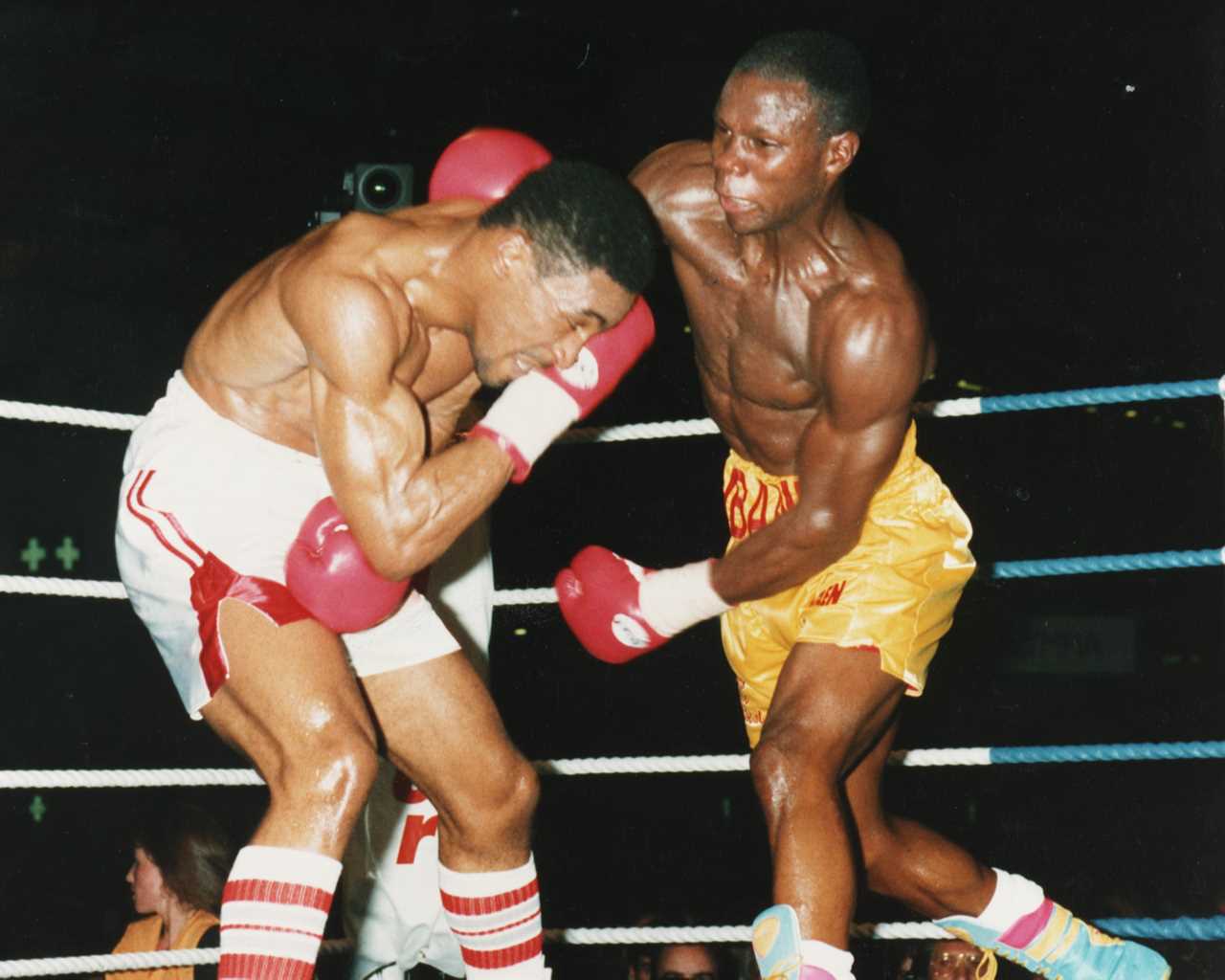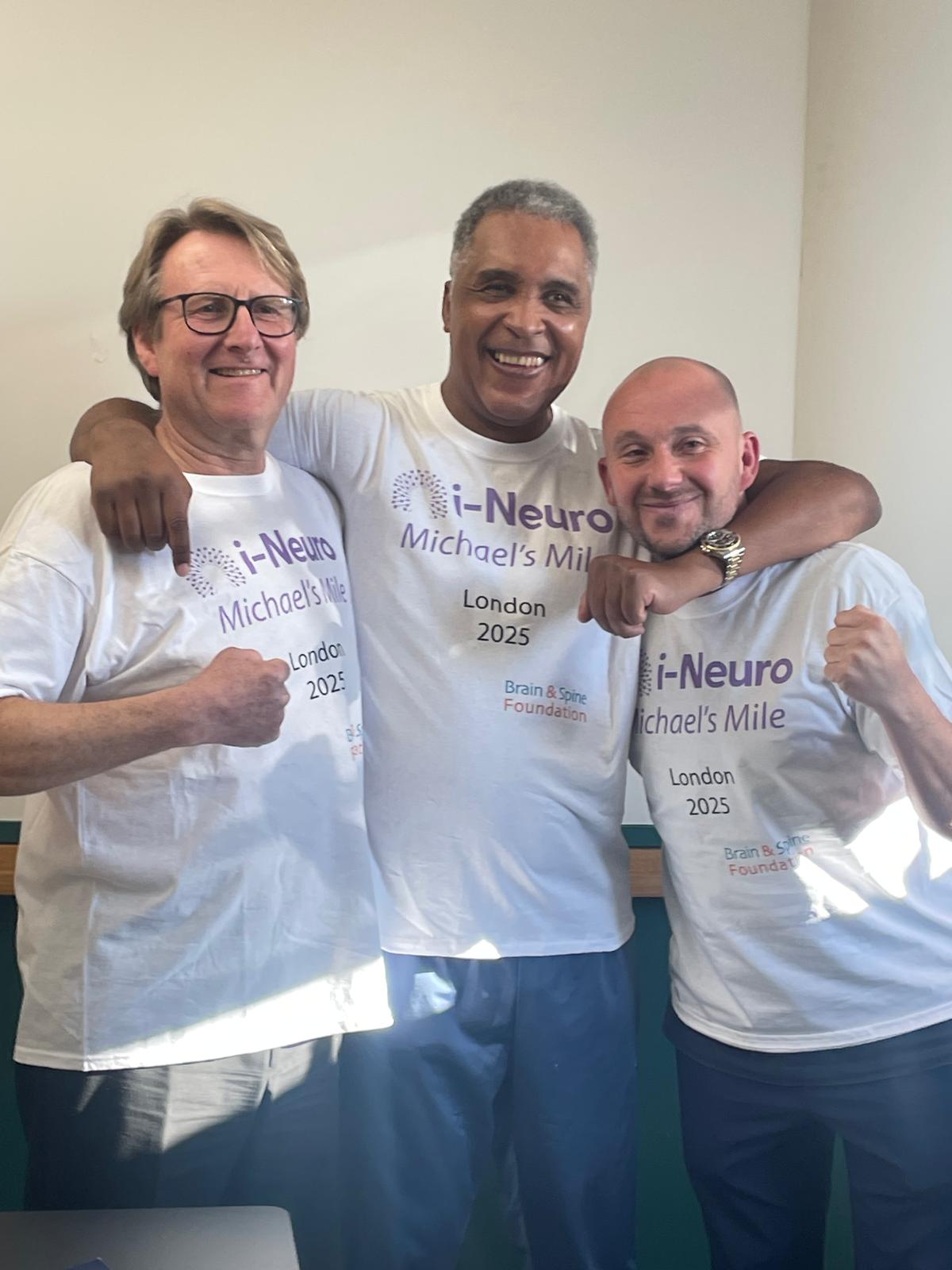
A Life-Changing Moment
On that fateful night in 1991, British boxing star Michael Watson faced a devastating defeat against Chris Eubank Sr. The match, intended to crown a super-middleweight champion, ended abruptly when Watson sustained severe brain injuries. The aftermath was harrowing, with his life hanging in the balance until Dr. Peter Hamlyn performed emergency surgery that saved him.
Partnership that Endures
Since that critical night at Tottenham’s White Hart Lane stadium, Dr. Hamlyn has remained a steadfast presence in Watson’s life. Their bond deepened over the years, culminating in a remarkable feat in 2003 when they completed the 26-mile London Marathon together. This endeavor was not just a physical challenge but a testament to their unwavering support for each other.
Running for a Cause
Now, as Watson celebrates his 60th birthday, the duo is set to embark on another significant journey. On Wednesday, April 16, at the National Police Memorial in St James’ Park on the Mall, Watson and Dr. Hamlyn will walk a mile to raise funds for The Brain and Spine Foundation. The event, scheduled for 1pm, highlights Watson’s commitment to giving back and supporting others facing similar struggles.
A Heartfelt Tribute
Watson’s enthusiasm for the upcoming mile is palpable. Speaking to SunSport, he expressed his eagerness for the challenge, crediting Dr. Hamlyn for encouraging him to participate. "I am absolutely looking forward to the mile because I love a challenge," Watson shared. "It’s Peter’s fault I have been roped into it again; he challenged me to do it for the Brain and Spine Foundation and, stupidly, I said ‘yes’."

The knightly friendship between Watson and Eubank Sr. remains strong. Eubank Sr. was present at Watson’s recent milestone birthday celebration, where he gifted him a Rolex watch—another meaningful gesture that underscores their enduring camaraderie despite the tragic events that once shook their lives.
Looking Forward with Hope
Surrounded by dedicated supporters like carer Haroun Topalak, friend Geraldine Davies, and Dr. Hamlyn, Watson feels a profound sense of happiness and purpose. "I feel so privileged to be English because I feel so loved by my fans," he remarked. "British boxing fans make me feel so appreciated and it makes me feel overwhelmed and blessed to be who I am."
Watson’s journey is a beacon of resilience. After years of recovery, including a 40-day coma and six years in a wheelchair, he stands stronger than ever. Dr. Hamlyn lauds his determination, stating, "Michael is truly amazing. I have never seen a man survive that type of injury."
The upcoming mile walk is more than a fundraiser; it’s a celebration of life, friendship, and the unwavering human spirit. With support from the Boxing community and generous donations from figures like Frank Warren, who has contributed £25,000, the event promises to make a significant impact for The Brain and Spine Foundation.
Join the Journey
Support for Watson and the marathon runners continues to grow, with numerous individuals stepping forward to contribute. Sponsorship opportunities are available for those looking to back Michael Watson and the 50 participants undertaking the full London Marathon for the Brain & Spine Foundation. This collective effort not only honors Watson’s legacy but also paves the way for advancements in brain and spine research.
As Watson approaches this new chapter, his story serves as a powerful reminder of the strength found in community and the importance of perseverance. At 60, he remains a symbol of hope and dedication, inspiring others to overcome their own challenges and strive for greatness.
Frequently Asked Questions
What are the roles of managers and promoters in a professional boxer's career?
Promoters and managers are crucial to a professional boxer's career. Managers manage the career of boxers, negotiate contracts, and take care of their business affairs. They can also assist in choosing the right fights for the boxer and take care of his or her interests. Promoters on the other hand focus on event planning, marketing of fights, attracting audience, and sponsor attention. This enhances a fighter's public image and earning potential.
What qualities should a person look for in a trainer or coach of boxing?
If you are looking for a boxing trainer or coach, look for someone with experience, who has a proven track record of success, has a similar coaching style and a thorough understanding of both the technical and strategic elements of the sport. A good boxing trainer will also focus on safety, personal growth, and conditioning. It is also important to find a boxing coach who can motivate you and communicate effectively.
How important is physical training in professional boxing?
Professional boxing requires a high level of physical conditioning. The sport demands high levels of strength, speed, endurance, and agility. Professional boxers are required to follow a fitness regimen that includes anaerobic and aerobic exercises, resistance and strength training, as well as flexibility workouts. A boxer cannot train efficiently and perform well in the ring without superior physical fitness.
How does a boxer maintain weight and weight class?
Boxers can control their weight by sticking to a strict training schedule and diet. Dieticians work with boxers to create a diet that allows them to achieve their weight-class target without sacrificing energy and nutrition. Regular weight checks and consistent exercise are essential, especially when a fight is approaching. Weight management can be a strategy that can cause health problems or poor performance if it is not done correctly.
How long does it take to become an elite boxer?
The time to become professional boxer can differ greatly. The length of time to become a professional can be affected by the person's initial skill level, his or her ability to adapt and their training. On average, it could take several years of dedicated training and successful amateur experience before one is ready to turn professional. Some talents will develop faster than others.
What is the basic training program of a Boxer?
A boxer’s training program is typically composed of a few key components. Technical skill development, strength and conditioning exercises, sparring and mental preparation are all part of a boxer's training routine. Technique-focused workouts improve punch accuracy and defensive maneuvers, while tactical drills develop fight strategies. Sparring allows for practical combat experience. Conditioning exercises boost athleticism. Mental training helps build confidence, focus, resilience and resilience.
What is required to begin training in professional boxing?
To begin training for professional boxing, one must possess a strong commitment to physical fitness, discipline, and a willingness to learn. In the beginning, you will need to master basic fundamentals such as stance, footwork and punches. It is crucial to join an experienced boxing club with trained trainers that understand the nuances and complexities of professional competition. To develop their skills, new boxers will undergo rigorous conditioning drills as well as sparring and technique drills.
Statistics
- As per recent surveys, only about 17% of professional boxers reach a title shot opportunity in their careers.
- Approximately 80% of professional boxers start their career in the amateur ranks before transitioning to the professional level.
- Statistical data indicates that there has been a 15% increase in the number of professional boxing gyms over the last decade.
- Research shows that a boxer's reaction time is typically under 0.25 seconds, honed through repetitive drills and sparring.
- Reports suggest that successful professional boxers can earn upwards of 50 times more than the median purse for entry-level professionals per fight.
- Less than 10% of professional boxers are undefeated throughout their career, highlighting the sport's competitive nature.
- Around 60% of professional boxers supplement their income with other activities or jobs, due to variability in fight earnings.
External Links
How To
How to Get Your First Professional Boxing Fight
Landing your first professional boxing fight requires a combination of training, networking, and marketing yourself as a fighter. Build a strong amateur record to display your skills and gain attention. Connect with gym owners, promoters and trainers who may have opportunities to offer or be aware of openings in fight cards. Promote your brand by creating promotional materials, such as highlight reels of your fights. Also, maintain a strong social media presence. Stay ready to fight all the time so that you are able to seize opportunities when they arise.
Did you miss our previous article...
https://sportingexcitement.com/boxing/daniel-dubois-faces-mandatory-title-defence-against-derek-chisora
 CricketBoxingFormula 1GolfHorse RacingPremier LeagueTennisPrivacy PolicyTerms And Conditions
CricketBoxingFormula 1GolfHorse RacingPremier LeagueTennisPrivacy PolicyTerms And Conditions
